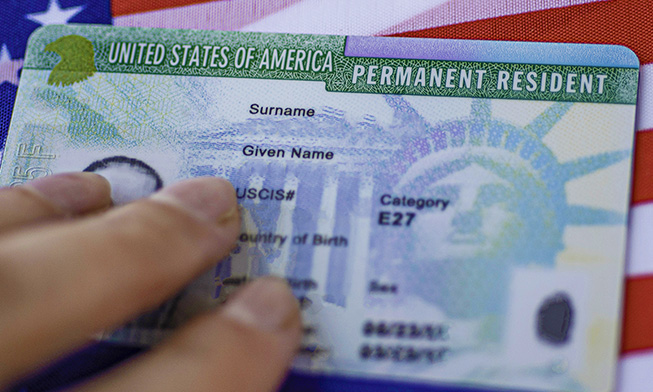
The Social Benefits of a Green Card: Access to Community and Support Services
Acquiring a Green Card is a significant milestone for immigrants in the United States. It grants lawful permanent residency, allowing individuals to live and work in the country indefinitely. While the most well-known Green Card benefits include employment opportunities and the ability to travel freely, there are numerous social advantages that significantly enhance the quality of life for Green Card holders. This blog explores the social benefits of a Green Card, particularly in accessing community and support services.
Enhanced Community Engagement
One of the most profound green card benefits is the ability to engage with the community on a deeper level. Green Card holders can participate in local events, volunteer opportunities, and community organizations without the restrictions often faced by temporary visa holders. This engagement fosters a sense of belonging and connection to the local culture and community. Many communities offer programs specifically designed for immigrants, such as cultural festivals, language classes, and mentoring programs, which can help new residents acclimate to their surroundings and establish social networks.
Access to Educational Opportunities
Green Card holders also gain access to various educational resources that may not be available to non-residents. They can enroll in public schools, colleges, and universities at the same tuition rates as U.S. citizens. This access to education is crucial, as it allows immigrants and their families to pursue higher education and vocational training, leading to better job opportunities and economic mobility. Additionally, many community colleges and adult education centers offer programs tailored to immigrants, helping them improve their language skills, gain certifications, and enhance their employability. For any type of opportunities regarding card benefits, organizations like DU Digital Global can provide valuable resources and guidance.
Health and Social Services
Another significant benefit of holding a Green Card is access to health care and social services. Permanent residents can enroll in public health programs like Medicaid and the Children’s Health Insurance Program (CHIP), which can provide essential health coverage for low-income families. This access is vital for ensuring that Green Card holders and their families receive necessary medical care without incurring overwhelming expenses.
In addition to health services, various community organizations offer support for Green Card holders, including food assistance programs, housing support, and mental health services. These programs are often tailored to the needs of immigrants, providing culturally relevant resources and support to help them navigate life in a new country.
Legal Protections and Rights
Green Card holders enjoy certain legal protections that enhance their social standing within the community. They have the right to live and work in the U.S. without fear of deportation, provided they comply with the law. This stability allows them to participate fully in community life, seek employment, and pursue personal goals without the constant anxiety of potential removal from the country.
Additionally, Green Card holders have the right to petition for certain family members to receive Green Cards, allowing them to reunite with loved ones and build a supportive family network in the U.S. This ability to bring family members to the country further strengthens community ties and fosters support systems for immigrants.
Cultural Exchange and Community Integration
Green Card holders contribute to the rich tapestry of American society, bringing diverse perspectives, traditions, and skills. This cultural exchange is beneficial for both immigrants and the broader community, as it promotes understanding, tolerance, and cooperation among individuals from different backgrounds. Green Card holders can share their unique cultural heritage through community events, educational programs, and artistic endeavors, enriching the local culture and enhancing social cohesion.
Community integration is facilitated through various organizations and programs designed to assist immigrants in adapting to their new environment. Many cities have community centers that offer resources such as language classes, job training, and cultural orientation workshops. These programs empower Green Card holders to thrive in their new communities and contribute positively to society.
Access to Public Benefits and Resources
Green Card holders have access to a wide range of public benefits and resources that can significantly improve their quality of life. These may include access to public libraries, community centers, and recreational facilities. Many local governments offer programs specifically designed for immigrants, including financial assistance, job placement services, and legal aid.
Moreover, Green Card holders are eligible for various state and federal benefits, such as food assistance, housing assistance, and unemployment benefits. These resources are crucial for helping individuals and families navigate economic challenges and build a stable foundation for their lives in the U.S.
Conclusion
The social benefits of a Green Card extend far beyond the immediate advantages of legal residency and employment opportunities. Access to community engagement, educational resources, health and social services, legal protections, and public benefits all contribute to a richer, more fulfilling life for Green Card holders. As they integrate into their communities, immigrants with Green Cards not only improve their own lives but also enhance the social fabric of the United States, fostering a diverse and vibrant society.
For those considering the journey to permanent residency, understanding these green card benefits can provide motivation and clarity about the positive impact of becoming a Green Card holder.






Leave Your Comment